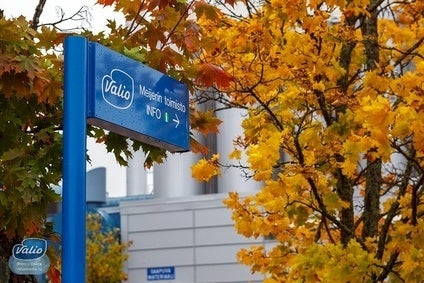
Finnish dairy and soft-drinks group Valio is phasing out the use of natural gas at its factories, it has announced.
However, Valio said the decision was taken before the war in Ukraine, which has left European countries facing gas shortages. Vladimir Putin has cut gas exports in response to sanctions imposed on the country following the February invasion of Ukraine.
It is understood 60-70% of Finland’s natural gas comes from Russia, with which it shares a border.
Valio, which said 10% of the energy it uses comes from natural gas, is to start the full phasing-out process at its dairy plant in Riihimäki. It has already started reducing the use of the fuel at other sites.
The company said the plant has already been converted to biofuels and natural gas has been used for heating only in the coldest weather. Now the natural gas boilers are to be replaced by an electric boiler.
Peter Fabritius, energy manager at Valio, said: “Natural gas has been in use in Riihimäki factories for a longer time with a small load, and in this kind of use, the efficiency of natural gas is poor. In addition, Valio’s goal is to reset milk’s carbon footprint to zero by 2035. This means phasing out fossil fuels such as natural gas.”
Fabritius admitted to Just Food Russia limiting the amount of natural gas it is exporting – and the resulting cost increases linked to a fuel shortage – was also a factor. “Of course, the current situation and energy prices have spurred our decisions,” he said.
“However, we have already started working to reduce our use of natural gas to operate responsibly and cost-effectively by building a bio-pellet boiler plant for our juice factory in Helsinki and an electricity boiler for our factory in Vantaa. We have stopped using natural gas in our storage at Tampere and switched to district heating.”
Valio, a cooperative owned by 4,000 Finnish farmers, has two production plants in Riihimäki, a snack plant completed in 2017 and the Herajoki dairy plant, which has been operating since the late 1960s.
The latter plant produces milk, buttermilk and cream while the snack factory produces yogurt for domestic use and for export as well as plant-based Oddlygood products.
Last month, Nestle revealed it had contingency plans to deal with any gas shortages experienced by its plants in Europe. Recent reports have suggested other European food businesses, including Germany frozen pizza maker Dr. Oetker and Switzerland-based bakery firm Aryzta are now using oil rather than gas where possible.
And in September, Germany’s competition regulator gave the green-light for the country’s major sugar manufacturers to cooperate in the event of gas supply shortages worsening.


